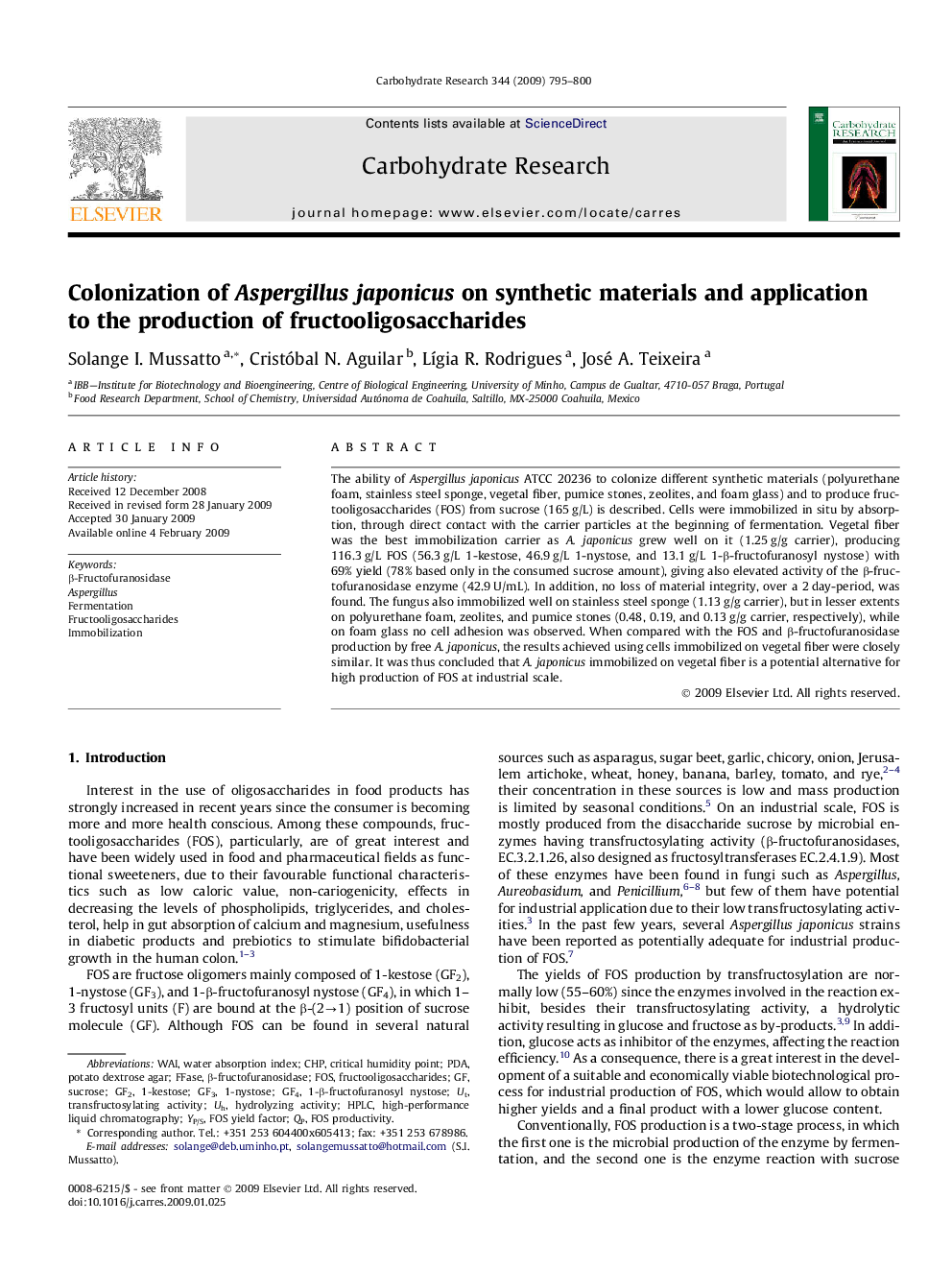| کد مقاله | کد نشریه | سال انتشار | مقاله انگلیسی | نسخه تمام متن |
|---|---|---|---|---|
| 1385025 | 982427 | 2009 | 6 صفحه PDF | دانلود رایگان |

The ability of Aspergillus japonicus ATCC 20236 to colonize different synthetic materials (polyurethane foam, stainless steel sponge, vegetal fiber, pumice stones, zeolites, and foam glass) and to produce fructooligosaccharides (FOS) from sucrose (165 g/L) is described. Cells were immobilized in situ by absorption, through direct contact with the carrier particles at the beginning of fermentation. Vegetal fiber was the best immobilization carrier as A. japonicus grew well on it (1.25 g/g carrier), producing 116.3 g/L FOS (56.3 g/L 1-kestose, 46.9 g/L 1-nystose, and 13.1 g/L 1-β-fructofuranosyl nystose) with 69% yield (78% based only in the consumed sucrose amount), giving also elevated activity of the β-fructofuranosidase enzyme (42.9 U/mL). In addition, no loss of material integrity, over a 2 day-period, was found. The fungus also immobilized well on stainless steel sponge (1.13 g/g carrier), but in lesser extents on polyurethane foam, zeolites, and pumice stones (0.48, 0.19, and 0.13 g/g carrier, respectively), while on foam glass no cell adhesion was observed. When compared with the FOS and β-fructofuranosidase production by free A. japonicus, the results achieved using cells immobilized on vegetal fiber were closely similar. It was thus concluded that A. japonicus immobilized on vegetal fiber is a potential alternative for high production of FOS at industrial scale.
Figure optionsDownload as PowerPoint slide
Journal: Carbohydrate Research - Volume 344, Issue 6, 21 April 2009, Pages 795–800